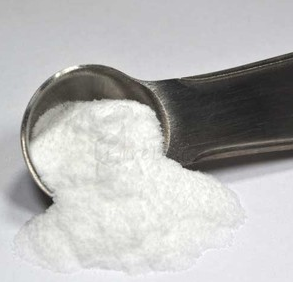Short answer
Calcium Disodium EDTA (Ethylenediaminetetraacetic Acid) is a chemical chelating agent found in many household foods and beverages. Research shows that in addition to the short-term side effects, the chemical may build up in the body, causing significant toxicity after long-term use.
Long answer
EDTA also known as Ethylenediaminetetraacetic Acid is a chemical salt that was initially developed in Germany to bind metals and extract them out of water. Later in the 1940’s it was used in individuals as a therapeutic chelating agent to bind and remove excess calcium, lead and other heavy metals. One form, known as calcium disodium EDTA, appears in foods and cosmetic products to prevent air from spoiling them by introducing unwanted oxygen into the products' molecular structures. It is also used in many food products to bind metals that occur during harvesting and manufacturing of food. The purpose is to increase shelf life by preventing rancidity, discoloration, and the separation of oils and fats.
Although deemed safe by the FDA this chelating agent has been linked to several health concerns. EDTA is a chemical created from the combination of formaldehyde, sodium cyanide, and ethylene diamine. This chemical is added to many sodas, processed foods including sandwich spreads, salad dressings, sauces and numerous canned or pickled foods. There is limited data about the true safety of EDTA in food and cosmetics. Some advocates of the preservative state that the chemical does not reach a level of toxicity in humans until 2.5 - 3 grams and may be considered to be a danger when consumed for several consecutive days. Additionally, some scientists suspect that it is a persistent organic pollutant (POP). In that case, each intake would only be partially excreted, while the remaining part builds up in the body. Thus, long-term exposure to calcium disodium EDTA would potentially create toxicity in the body. Environmentalists have similar concerns regarding the eliminated portion of the POP and its inability to be broken down.
When used as a medicinal chelating agent there are several possible adverse effects. There is the possibility of depletion of important metals/vitamins, hypotension, headaches, migraines, abdominal discomfort, and the lowering of blood sugar. More troubling is the long-term risks of toxicity and kidney damage. An additional concern is attributed to the unknown side effects of the possible build up in the body over time. As a whole, people are using more artificially preserved items now than ever before in history. The collective overuse of many toxic and carcinogenic chemicals create a problem for researchers in ascertaining which destructive substances are responsible for specific long-term side effects.
Obviously, with the utilization of the numerous chemicals in our foods, beverages and cosmetics the best approach would be to look for quality all natural organic options.
Possible short-term side effects
- vitamin depletion
- hypotension
- headaches/migraines
- skin rash
- asthma
- abdominal discomfort
- lowering of blood sugar
Possible long-term side effects
- toxicity in high doses
- build-up in the body
- cancer
- kidney damage
Commonly found in
- ranch dressing
- mayonnaise
- other sandwich spreads
- canned foods such as baked beans
- sodas such as fresca
- shampoos
- skin creams
- deodorants
Ingredients to be aware of
- formaldehyde
- cyanide sodium
- ethylene diamine

Benefits
- preserves various products
 Approved by
Approved by 







.png)







